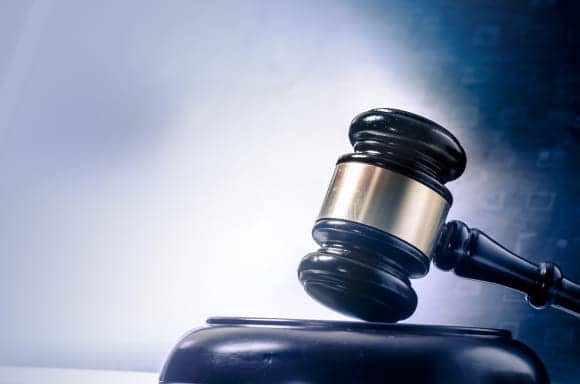Eargo Inc (Eargo), a for-profit public corporation headquartered in California that sells and dispenses hearing aid devices directly to customers nationwide, has agreed to pay $34.37 million to “resolve allegations that it submitted or caused the submission of claims for hearing aid devices for reimbursement to the Federal Employees Health Benefits Program (FEHBP) that contained unsupported hearing loss diagnosis codes,” according to an announcement from the US Department of Justice (DOJ).
Related Article: Eargo Stock Price Reels After News of DOJ Investigation
In a statement published on its website the same day, Eargo announced the settlement reached with the DOJ, stating that, “Eargo denies the allegations in the settlement agreement, and the settlement agreement is not an admission of liability by Eargo. The allegations did not pertain to the quality or performance of the product. The Company’s payment of approximately $34.4 million to the government will resolve allegations that Eargo submitted or caused the submission of claims for payment to the FEHB program using unsupported hearing loss-related diagnosis codes.”
Eargo also addressed the settlement in a separate business update posted on its website:
Christian Gormsen, Eargo President and Chief Executive Officer, said, “We are pleased that we have now put the DOJ investigation behind us and have done so on such a rapid timeline since learning of the investigation on September 21, 2021. We can now turn our focus back to operating the business and to future growth opportunities. One of our top management priorities is to regain insurance coverage of Eargo for government employees under the FEHB program, and we are very pleased that OPM has agreed to not take administrative action seeking the exclusion of Eargo from the FEHB program and has indicated there will be an opportunity for further dialogue with us. Our goal is to align with the OPM on and establish processes to support the submission of claims through the FEHB program. We expect this to take some time, and it is too early to speculate whether we will be able to reach acceptable processes to support the submission of claims. While we have incurred increased expenses, primarily in connection with the DOJ investigation, we have also made several operational changes since learning of the DOJ investigation, including no longer accepting insurance benefits as a form of payment and adjusting our media spend to focus on cash-pay customers. We believe these factors, as well as the uncertainty following our learning of the DOJ investigation, resulted in lower shipments and higher cash burn in the fourth quarter. While this created a very challenging operating environment, the quick and decisive action we took to improve the efficiency of our cash-pay business resulted in higher conversion rates at significantly lower media spend levels. When combined with several additional cost cutting initiatives, these efforts have allowed us to reduce our cash burn relative to the abnormally high cash burn in the fourth quarter of 2021.”
The United States alleged that, from January 1, 2017, through January 31, 2021, Eargo included unsupported hearing loss-related diagnosis codes on claims for hearing aid devices that Eargo submitted to the FEHBP and on invoices — called superbills — that Eargo provided to FEHBP beneficiaries to obtain reimbursement for such devices from the FEHBP, according to the DOJ’s announcement. The United States further alleged that between February 1, 2021, and September 22, 2021, Eargo continued to include these unsupported hearing loss-related diagnosis codes on claims and superbills — even after completing an internal review of its billing and coding practices in January 2021 — resulting in Eargo knowingly submitting or causing the submission of false claims for payment to the FEHBP.
According to Eargo’s announcement, “From the time the Company learned of the DOJ investigation until December 8, 2021, the Company continued to process orders for customers with potential insurance coverage (including FEHB program members) but suspended all claims submission activities and has offered affected customers the option to return their hearing aids or purchase their hearing aids without the use of their insurance benefits in case their claim is denied or ultimately not submitted. Based on the terms of the civil settlement agreement, the Company does not expect to seek any additional payment from customers whose claims have already been submitted. The Company made the decision to stop accepting insurance benefits as a method of direct payment beginning on December 8, 2021.”
Further, Eargo states: “The Company also determined that customer transactions using insurance benefits as a method of direct payment submitted subsequent to the date the Company learned of the DOJ investigation on September 21, 2021 did not meet the criteria for revenue recognition. Therefore, the Company has not recognized revenue for shipments to customers with potential insurance coverage, substantially all of whom were covered under the FEHB program, subsequent to that date. As part of assessing the impact of the DOJ investigation, the Company also anticipates a change in its estimate of the sales returns recorded in the third quarter of 2021, based on its estimate that a majority of customers with unsubmitted claims will choose to return the hearing aid system. This change in estimate includes unsubmitted claims from transactions that occurred prior to the third quarter of 2021.”
Eargo goes on to say that the “total third quarter 2021 gross systems shipped were approximately 13,117, an increase of approximately 30% versus the third quarter of 2020. Approximately 48% of those shipments were to customers using insurance benefits as a method of direct payment. Additionally, the Company did not recognize revenue on approximately 670 hearing aid systems shipped to customers with potential insurance coverage during the third quarter of 2021, subsequent to the date it learned of the DOJ investigation on September 21, 2021. Total fourth quarter 2021 gross systems shipped were approximately 7,760, down approximately 36% year-over-year. 20% of preliminary fourth quarter shipments were shipments to customers with potential insurance benefits and for which the Company did not recognize revenue.”
Preliminary first quarter 2022 gross systems shipped are expected to be approximately 5,770, down approximately 51% year-over-year, representing 100% cash pay shipments, according to Eargo. The company says that preliminary cash and cash equivalents were approximately $89 million as of March 31, 2022, $110 million as of December 31, 2021, and $156.4 million as of September 30, 2021. Net operating cash burn in the fourth quarter 2021 was $45.9 million and included several expenses specific to the DOJ investigation.
Eargo says that the Company previously disclosed an audit by its largest third-party payor, and the Company remains subject to a prepayment review of claims by that payor. The Company also does not intend to submit any claims through the FEHB program until it is able to align with the OPM on and establish processes for supporting the submission of these claims.
In line with the Company’s priority to regain insurance coverage of Eargo for government employees under the FEHB program, the Company is focused on enhancing its compliance and risk management processes with respect to its operations in the healthcare industry and hiring additional qualified personnel and specialized consulting resources before submitting any further claims. Additionally, among other things, the Company intends to establish a new role of Chief Compliance Officer, and the board of directors intends to form a new Risk and Compliance Committee comprised solely of independent directors, according to Eargo.
The resolution obtained in this matter was the result of a coordinated effort between the Justice Department’s Civil Division, Commercial Litigation Branch, Fraud Section, and the US Attorney’s Office for the Northern District of Texas, with assistance from OPM-OIG, the DOJ stated in its announcement.
The matter was handled by Fraud Section Trial Attorney Samuel Lehman and Assistant US Attorney Kenneth Coffin for the Northern District of Texas.
The claims settled by this agreement are allegations only and there has been no determination of liability.
Source: DOJ, Eargo






